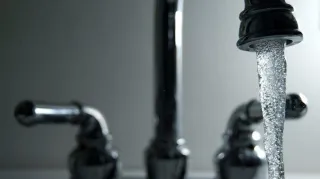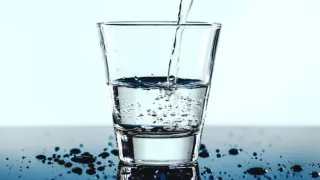LED BY PROFESSIONAL DEDICATED EXPERTS
Protect Your Health With Clean Water
We care about you and your family!

Welcome
Ensuring 24/7 access to pure, healthy, germ-free water!
Consuming and using clean water is a prerequisite for leading a healthy life. Florida Water Control is all about analyzing water samples using the latest technology to ensure you have access to healthy, contaminant-free water. Water testing identifies the levels of contaminants and minerals in your water samples. Our water specialists capitalize on their experience and resources to set water remediation goals for you. We aim to improve the water standards at your home because we care about you and your family!
Madina Sokolov, PhD in Neuroscience
OUR OPENING HOURS: Monday to Sunday: 9:00 am to 8:00 pm
315
315 Contaminants Found in Water Nationwide
Source: EWG
Since 2010, water testing has found pollutants in both tap and bottled water across America.
Since 2010, water testing has found pollutants in both tap and bottled water across America.
No. of microplastics in bottled water
10
Nestle
5
Bisleri
5
Gerolsteiner
5
Danone
Our Services
Did you know that the drinking water in Florida comes from aquifers that are located a few feet under the ground? It may sound interesting but the truth is that it just increases the chances of water contamination. At Florida Water Control, we offer the following services to ensure that your water has the right taste and quality.

Chlorine Testing
Analyze your water samples to determine the level of free chlorine. Excessive amounts can be hazardous for your health.

Lead Testing
Lead is a natural metal that contaminates your drinking water and can cause serious health problems in children as well as adults. Make sure that your water is free of lead and is completely safe and healthy for drinking and cooking purposes

Bacteria Testing
Coli and fecal coliform bacteria can contaminate water by human and animal wastes. Some bacteria may not typically be harmful but some may cause short-term health problems. It's important to get your water tested for bacteria to ensure the optimal health of your family.

Pesticides Testing
Do you live in an area that's packed with farms and/or is sprayed frequently with pesticides? The water
you
drink and use may be contaminated with pesticides.
We can help you find out if it's true using our specialized tools, resources, and experience in water
testing!

pH Testing
We also conduct pH testing of all water samples to identify the pH level. This test tells how acidic or alkaline your water is.

Nitrite/Nitrate Testing
Nitrate/nitrite is one of the most common contaminants found in groundwater. High levels of these substances in your drinking water pose the risk of serious health effects, including blue baby disease. Let our water specialists find out if your water is contaminated with nitrates and nitrites because we care about you and your family.

Qualified Staff

Latest Equipment

Highest quality Results

State-of-the-art Facility

Unmatched Expertise
Want to find out how pure the water in your area is?
Request a test and receive accurate results in record time!
Use Us For All Your Water Testing Needs
Use clean water for drinking, cooking, bathing, and more!

Professional Testing
We use the latest equipment and most efficient resources.

Independent Verification
We are committed to meeting our clients’ needs with no associations with any government structure.

Accurate Water Results
We evaluate the best solutions in the market and provide insightful reports after you choose your solution.
Reviews
My husband had health problems and our doctor strongly advised us to do a water test. Thanks to Florida Water Control, we have learned a lot about the composition of the water and supplied special filters. We are grateful for the help!

Helen I.
For a long time I was looking for someone who can professionally test my water.
These guys are truly the best! All questions answered, everything explained. And they gave me good recommendations on the best way to improve my water quality.
Thank you Florida Water Control!

Lelah B.
I live in Broward county. Everyone knows what kind of water we have. I called Florida Water Control and they came the same day. Very professional! They managed to help me with choosing the right equipment for my needs and more than that I saved a lot. Highly recommended.

Justin L.
Recent News
How Much Does a Water Softener Cost?
The average cost of a water softener is around $3000 for a base model, but some of the larger models ...more
Water technology
August 27, 2025•1 min read

What exactly is soft water?
Water very commonly contains hardness elements such as magnesium and calcium, dissolved rock ...more
Water technology
August 27, 2025•1 min read

Don’t water filters remove important minerals from my water?
Studies have found that minerals in your drinking water make essentially no contribution to your health ...more
Water technology
August 27, 2025•1 min read

Frequently Asked Questions
Doesn’t my municipality already treat and test my water?
If your water comes from a public or municipal water system, it is regularly tested for contaminants regulated by federal standards, such as microbial pathogens, radioactive elements and organic and inorganic toxic chemicals. However, it is important to note that these tests are conducted at the source. Therefore, the quality of water that utilities create is not necessarily a measure of the quality that reaches your home. Over time pipes age and erode, and often water treatment or distribution systems are breached by unforeseen occurrences that result in boil water alerts.
Most municipalities address the issue of delivery to the home by treating water with chlorine to kill bacteria. However, their goal is to meet minimum federal requirements. Chlorine is commonly used to kill organic material in water thereby protecting the public from diseases such as typhoid, cholera and dysentery. It is also great for neutralizing color and odor. Unfortunately, it has come to light that the byproducts of chlorine can cause serious health problems. These by-products have made headlines and research to establish your own comfort level with each is important.
Taking charge of your own water with a municipal water solution eliminates your risk of dependence on third party providers and allows you to specifically remove the health risks that concern you.
Isn’t bottled water better for you than tap water?
Federal standards for bottled water are no stricter than standards for tap water. That means that federal regulations only require bottlers to test for a handful of the hundreds of known chemical contaminants. But there are other issues to consider such as cost, convenience and usability. It is a lot less expensive to own your own Drinking Water Station when you consider the time and costs associated with bottled water. Also, your drinking water system will allow you to use the water for many purposes including cooking without rationing. Treating your own water at home will eliminate the need for storing bulky plastic bottles and supply you with unlimited water, right on tap, at prices per liter that are much less than buying bottled water.
Another issue is that the use of bottled water is environmentally questionable when one considers the unnecessary costs of plastic generation, product transportation and empty bottle waste/recycling.
Don’t water filters remove important minerals from my water?
Studies have found that minerals in your drinking water make essentially no contribution to your health and may even be present in forms your body can’t absorb. Minerals in an inorganic state flow through our systems versus minerals in an organic state that are readily absorbed by our bodies. You are much better off maintaining a balanced diet that provides you with an adequate supply of important vitamins and minerals.
However, for those who do want to add healthy mineral into their drinking water, or if you’d just prefer the flavor of water with a bit of mineralization, water filtration companies offer the Mineral cartridge which can be included in the Drinking Water Station.
Make sure you choose the high quality materials.
What exactly is soft water?
Water very commonly contains hardness elements such as magnesium and calcium, dissolved rock, hence the description of hard water. Soft water is when these minerals are removed through a process known as ion exchange. If you have hard water, you may see staining or scaling build up on your sinks, tubs, showers and clothing; scaling deposits on your glassware; and damage due to scale in your pipes and appliances. You will also notice less lather from your shampoos/soaps and a filmy dryness feeling on your skin. Often, types of skin irritations are tied to hard water. All of these are symptoms of the need for softened water.
Hard water can also produce a rock-like scale that builds up in pipes, water heaters, plumbing fixtures, dishwashers and other water-related appliances. This scale will reduce water flow, clog valves and vents and create maintenance problems reducing the life of your appliances.
How Much Does a Water Softener Cost?
The average cost of a water softener is around $3000 for a base model, but some of the larger models the companies offer can cost as much as $8,000 or more. Your tech should test the water and measure the size of your home, check on the number of faucets you have and find out how many people there are in your household. If you have a larger than a normal house or have more contaminants, you’ll need a larger water softener.
Water softeners work effectively but may not be right for your home.
If the tech determines that you need more power than an ion or base model can provide, he or she will recommend one of the more advanced water softeners.
How Much Does Installation Cost?
At least $200 to install one of the base units. If you need one of the larger water softeners, it can cost up to $1000 to install it. This cost includes any special parts needed in the installation process and the labor used on the job.

Florida Water Control offers complete water testing services to the residents of Florida. From freshwater to well water and tap water, we analyze all kinds of samples to ensure that water is clean, healthy, and contaminant free.
Our experienced water specialists have extensive knowledge of water chemistry and environmental hazards. They will help you understand the steps required to improve water quality and safety standards at your home or office. With our help, you can adopt a safer and healthier lifestyle.
Our Services
Quick Links
Head Office
Contact Info
Copyright 2026. Florida Water Control Co. All Rights Reserved.
 Hair
Damage, Skin
Irritation, Blue-Green Stains On Fixtures
Hair
Damage, Skin
Irritation, Blue-Green Stains On Fixtures Chlorine
Taste
Chlorine
Taste
 Unpleasant
Odor
Unpleasant
Odor
 Asthma
Asthma
 Bladder
Cancer
Bladder
Cancer Heart
Desease
Heart
Desease No
Visible Sign
No
Visible Sign
 No
Distinct
Taste
No
Distinct
Taste No
Distinct
Odor
No
Distinct
Odor Nervous
System
Damage
Nervous
System
Damage Reproductive
Problems
Reproductive
Problems Impaired
Hearing
Impaired
Hearing
 Decreased
Kidney Function
Decreased
Kidney Function Vomiting
Vomiting
 Fever
Fever
 Stomach
Issues
Stomach
Issues
 Gastrointestinal
Issues
Gastrointestinal
Issues Hepatitis
Hepatitis
 Blue
Baby Syndrome
In Infants
Blue
Baby Syndrome
In Infants






